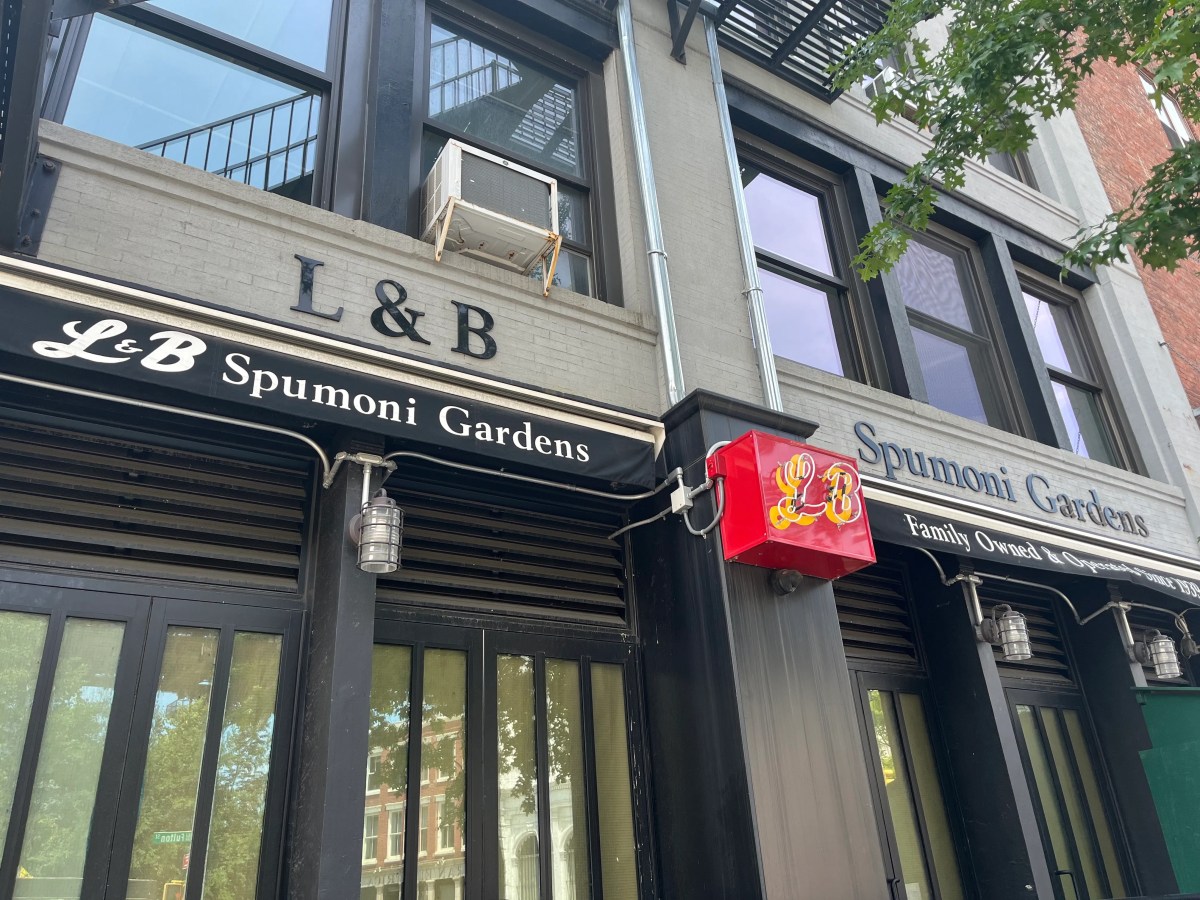By Jerry Tallmer
He was the quietest, most sedate revolutionary you ever saw in your life. Probably would have been upset if you called him a revolutionary. Might have said: “No, what I am is a teacher.” His classroom was the theater. His chalk and blackboard were actors and playwrights and their plays. Two playwrights in particular. Well, just one to start with. The girl who changed everything.
How she would have killed me for calling her a girl.
Okay, a beautiful coffee-colored silent young woman who was a waitress in a tiny restaurant full of crazy Russian Jews (her in-laws) just off Sixth Avenue in Greenwich Village. There would come a day – many, many days – when she would come into the office of the Village Voice, which she read religiously front page to back, and talk with us about anything and everything in the world, but there in the beginning, along about 1956, ’57, who knew that this wordless wisp of a waitress could even talk, much less write.
Sidney Poitier knew.
He took her, in 1957, to see his friend Lloyd Richards, fellow inmate of Paul Mann’s actors’ workshop, or maybe he just took her playscript and handed it to Lloyd Richards and asked him to read it. With an eye toward – someday – having Richards direct it.
That day came two years later. The play was “A Raisin in the Sun.” Its author, the young waitress from Chicago who lived on Bleecker Street and typed by hand in the days before the word-processor had been invented, was all of 29 years old the night at the Ethel Barrymore Theatre – March 11, 1959 – when, at final curtain, Sidney Poitier, the play’s Walter Lee Younger, would jump down over the footlights, pick Lorraine Hansberry up in his arms, and leap back on stage with her to the roars of an emotionally spent, exhilarated audience.
Lloyd Richards, who had directed that revolutionary work – a play on Broadway by a 29-year-old black woman, about black people, directed by a black man — was just over 40 years old. Philip Rose, the white man who with David J. Cogan had produced it, was 37 years old. “Never before in the entire history of the American theater,” said James Baldwin – I steal this from the New York Times obit on Lloyd Richards – “has so much of the truth of black people’s lives been seen on the stage.”
One suspects that Lloyd Richards’s direction was as much hands-off as hands-on. One suspects it was much along the lines that Jean Vilar of France’s Theatre National Populaire has confessed to. Let the actors do their thing, uninstructed, as they work their way into the text, one week, two weeks, three weeks, while you, the director, sit silently watching in the back row. “And then I get up, take a few steps down the aisle, and say: ‘May I help you?’ ”
Lloyd Richards not only helped them, he found and selected them, to his eternal glory. I can see them now, those players, 47 years later, hear them now, be stirred to my guts by them again now: Ruby Dee, Ivan Dixon, Lonne Elder III, John Fiedler (the white guy), Louis Gossett, Ed Hall, Claudia McNeil (leonine Mama Lena Younger), Diana Sands (Beneatha Younger, Walter Lee’s kid sister, with all the idealistic fire of Lorraine herself), Glynn Turman, Douglas Turner Ward (who would go on to co-create the no less vital Negro Ensemble Company), and, of course, Sidney Poitier.
“Intense” but “light-footed” is how Ruby Dee – Walter Lee’s stoical wife in the play – remembers Lloyd Richards’s direction. It probably also fits his role, his touch, in the second revolution to come his way, or he to lead the way: a script by an unknown applicant named August Wilson that Richards as artistic director of the Eugene O’Neill Theater Center in Waterford, Connecticut, pulled out of a pile in 1981 and decided to nurse into shape for staging. The play was “Ma Rainey’s Black Bottom.” August Wilson, in teamwork with Lloyd Richards, wouldn’t stop until they’d given us “Seven Guitars,” five dramas and a number of Pulitzers and Tony Awards later. Indeed, Wilson himself would almost from the first be hailed as the new, black Eugene O’Neill.
What’s always been curious to me is that August Wilson two or three times over the years would flatly reply – in answer to flat inquiry – that he had never (no, never) read ”Raisin in the Sun.” Think of it. Without “Raisin,” no “Ma Rainey.” It’s like a ball player – i.e., a black ballplayer – not knowing who Jackie Robinson was. In August Wilson’s case, it’s like someone denying his own mother – his intellectual, emotional, creative mother, whose life would be brutally cut down by cancer at age 34, twenty years before “Ma Rainey” reached Broadway.
Nor do I know why August Wilson and Lloyd Richards parted company in 1996 after “Seven Guitars.” Richards was then 77 years old (Wilson was 51); maybe that had something to do with it. August Wilson went on to do three other shows on Broadway – two final new plays in his decagon, plus a “Ma Rainey” revival – and Richards never stopped working. But in this case it’s as if August Wilson broke away from his own intellectual, emotional, creative father.
Lloyd Richards died in Manhattan on Thursday, June 29, 2006 – his 87th birthday. I think that Lorraine Hansberry and August Wilson are only two of hundreds and hundreds of people, thousands really – black actors, writers, directors, theatergoers, moviegoers, and not just them, and not just blacks – who might look upon him as a crucial, a memorable father of revolution.







































